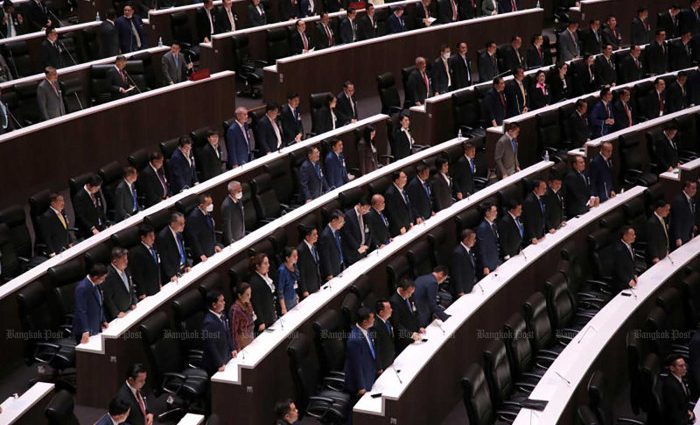
PUBLISHED : 21 Dec 2023 at 04:14
The House of Representatives on Wednesday passed its first reading of the government-sponsored bill seeking to decriminalise the writing of bad cheques except in fraud cases.
Addressing the chamber, Justice Minister Tawee Sodsong said the bill to amend the Offences Arising from the Use of Cheques Act BE 2534 (1991) would prevent the use of criminal liability against individuals who unintentionally write bad cheques.
He said the proposed amendment was also in line with Section 77 of the constitution, which states that criminal penalties should be imposed on serious offences only.
Both government and opposition MPs spoke in favour of the proposal, saying the law was outdated.
They agreed that no one should be prosecuted under criminal law if they did not have dishonest intent.
Anucha Buraphachaisri, a list-MP from the United Thai Nation Party, said the current cheque law imposes a one-year jail term and/or a fine of up to 60,000 baht for writing a bad cheque.
He said while the law aims to boost people’s confidence in the use of cheques, there are many cases where cheques are not honoured due to financial difficulties rather than any criminal intent.
However, he said criminal prosecution should be maintained for check fraud to deter dishonest behaviour, and those who issue bad cheques with or without the intention to do so still face civil suits.
Thirajchai Phantumas, a Move Forward Party (MFP) MP for Bangkok, said he agreed in principle with the amendment, but noted that without appropriate measures to deal with bad cheques, the move could erode public confidence in the use of cheques altogether.
Mr Thirajchai said banks should be stringent in giving credit lines to customers and tighten scrutiny of cheque accounts.
Anusorn Iamsa-ad, a list-MP of the Pheu Thai Party, also supported the bill and said anyone who intends to commit fraud must face legal action.
Mr Anusorn said payments have already shifted to electronic transactions, making the old law anachronistic.
The MPs voted unanimously to accept the bill. A 25-member panel will further examine the bill. Provisional clauses in it stipulate that those detained for writing bad cheques should be released when the law takes effect.

